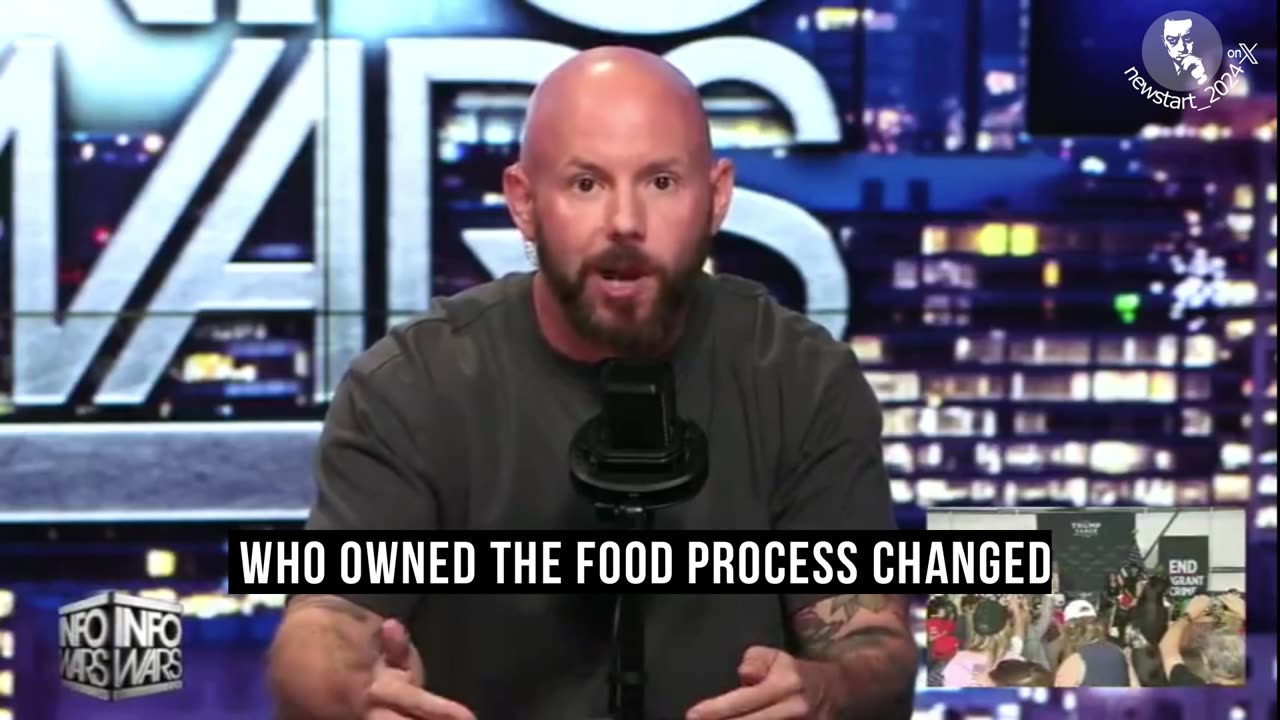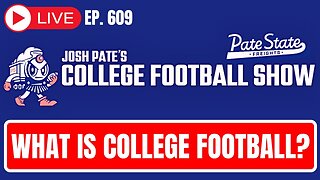Premium Only Content

Big tobacco conglomerates went out and purchased most of big food
Brigham Buhler: "And we can look at what's happening in our nation with the level of chronic disease, and we can go back to the eighties when everything changed. A lot of people don't know this, but all of the food industry was captured by big tobacco. Big tobacco was on the ropes. It was a bill billions and billions of dollars being made. The government was cracking down.
They were looking for new revenue streams, and the big tobacco conglomerates went out and purchased most of big food. And during the eighties, the big tobacco companies are who helped push forward the food pyramid, which we know today is one of the biggest lies ever told to the American people. And if you look at the chronic disease and the rocket ship of rise in chronic disease from the eighties to today, and you begin to say, what happened? The answer is our food changed. Who owned our food changed?
Who owned the food process changed? And then in addition to that, the pharmacy benefit managers who were supposed to be middlemen that were brought in and created to drive down the cost of prescription drugs for the average American to make it affordable so we can afford these drugs for our grandmas, our grandpas, you know, our loved ones. Instead, they were captured by who? The big pharmaceutical or the big, insurance companies. So United, Cigna, Aetna went out and bought all of the pharmacy benefit managers.
So starting in the eighties all the way through the nineties, big tobacco bought food, big insurance bought up all the middlemen pharmacy benefit managers. And rather than negotiating down the price of your prescription drug care, it pivoted. And they began to negotiate up the price of your prescription drugs. And you ask yourself, what that makes no sense. Why would an insurance company negotiate up the price?
Because the insurance company gets a rebate off of that increased price point. So think of it as a shell game. UnitedHealthcare says, Alex, your prescription drugs cost us $1,000 a month to provide you with this care. But the truth is, they got a $500 rebate to a holding company off of those prescription drugs. So it really only cost them $500.
But at the end of the year, they meet with your employer, and they roll out those additional charges to your employer at the $1,000 a month threshold, even though they never paid that."
-
 DVR
DVR
Nerdrotic
4 hours ago $4.99 earnedDown the Rabbit Hole with Kurt Metzger | Forbidden Frontier #090
22.1K6 -
 2:41:13
2:41:13
vivafrei
9 hours agoEp. 251: Bogus Social Security Payments? DOGE Lawsduit W's! Maddow Defamation! & MORE! Viva & Barnes
103K179 -
 LIVE
LIVE
Josh Pate's College Football Show
2 hours ago $0.19 earnedBig Ten Program Rankings | What Is College Football? | Clemson Rage| Stadiums I Haven’t Experienced
454 watching -
 LIVE
LIVE
Vigilant News Network
8 hours agoBombshell Study Reveals Where the COVID Vaccine Deaths Are Hiding | Media Blackout
2,096 watching -
 1:17:59
1:17:59
Sarah Westall
3 hours agoDOGE: Crime & Hysteria bringing the Critics & the Fearful - Plus new CDC/Ukraine Crime w/ Dr Fleming
10.1K2 -
 45:39
45:39
Survive History
9 hours ago $0.33 earnedCould You Survive in the Shield Wall at the Battle of Hastings?
6.49K5 -
 1:50:28
1:50:28
TheDozenPodcast
8 hours agoViolence, Abuse, Jail, Reform: Michael Maisey
13.4K1 -
 23:01
23:01
Mrgunsngear
1 day ago $2.94 earnedWolfpack Armory AW15 MK5 AR-15 Review 🇺🇸
29.3K12 -
 25:59
25:59
TampaAerialMedia
1 day ago $0.72 earnedUpdate ANNA MARIA ISLAND 2025
13.1K1 -
 59:31
59:31
Squaring The Circle, A Randall Carlson Podcast
10 hours ago#039: How Politics & War, Art & Science Shape Our World; A Cultural Commentary From Randall Carlson
10.4K2